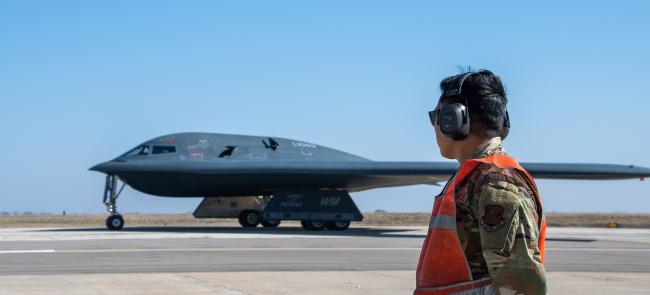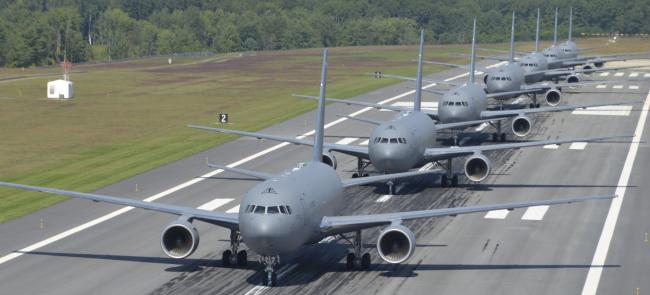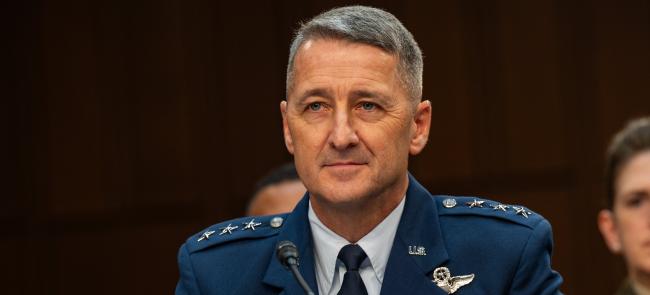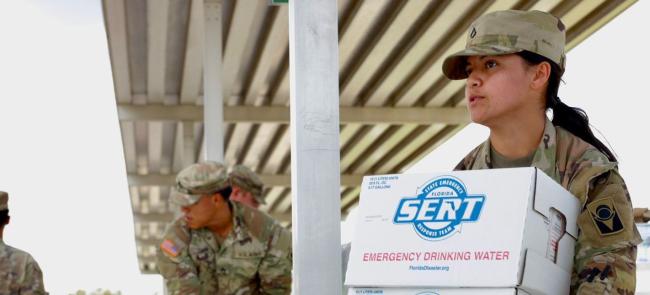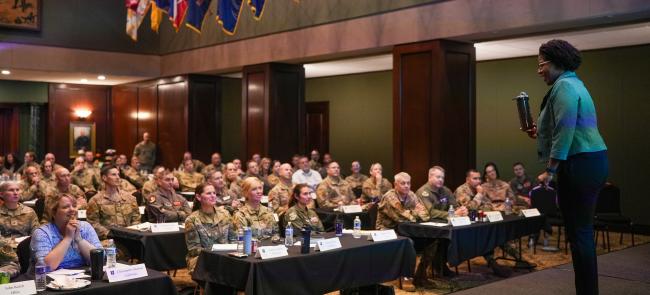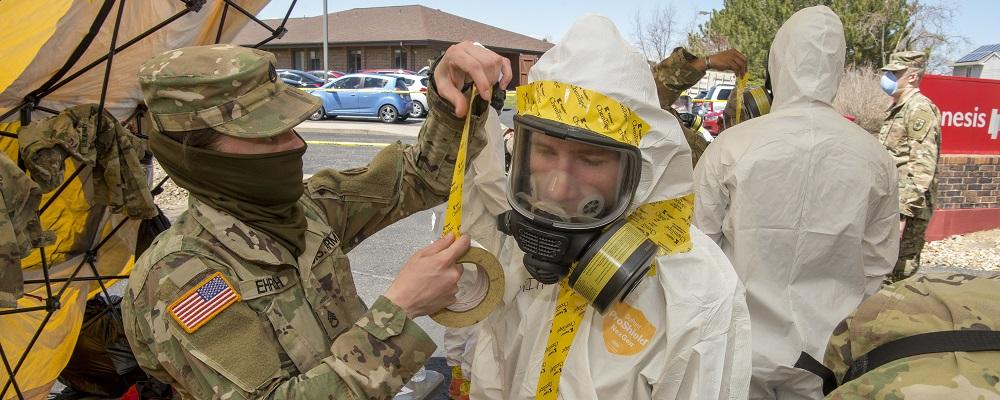
Nearly 45,000 National Guardsmen were supporting the nationwide COVID-19 response as of Monday, but not all were receiving the appropriate medical coverage.
Retired Brig. Gen. J. Roy Robinson, NGAUS president, spoke about that gap in coverage during an appearance on The Lead with Jake Tapper on CNN.
Tapper, CNN’s chief Washington correspondent, invited Robinson onto the program to talk about the efforts of Guardsmen “handling some of the most grim and dangerous tasks, including transporting dead bodies to medical examiners and disinfecting nursing homes.”
He noted that those efforts were underway despite many Guardsmen not being guaranteed the same medical coverage as their active-duty counterparts.
“I think most of your audience would be surprised that every service member responding to this pandemic may not be covered by the TRICARE insurance program that most of the active service members have access to,” Robinson said.
While approximately 75% of the service members responding to the pandemic are Guardsmen, not all of those Guardsmen are eligible for TRICARE.
As of Monday, more than 80% of Guardsmen were serving on federal Title 32 orders, but even those limit TRICARE coverage based on the length of the orders. Guardsmen must be on 31-day orders. Anything less does not convey TRICARE coverage.
Thousands more continue to serve on state active duty, which in most cases does not provide for additional health care coverage.
NGAUS has advocated for expanded TRICARE coverage, to include transitional benefits for Guardsmen coming off the front lines of the pandemic, where they are serving alongside medical professionals and first responders.
Robinson has previously written to Defense Department leaders seeking a “preemptive determination” to make transitional TRICARE available to Guardsmen coming off Title 32 duty.
Speaking to Tapper, Robinson said such coverage was needed to protect Guardsmen and their families. He also advocated for a system that would allow Guardsmen to quarantine following their duties without worrying about a loss of income.
“In this day and time, in the year 2020, in this country, I think it’s outrageous that some members of the National Guard are responding to this global pandemic and they may or may not be covered for any sickness that’s associated with it,” the NGAUS president said.
As of Monday, nearly 800 Guardsmen had tested positive for COVID-19. Thousands continue to serve in positions that put them at risk for exposure to the coronavirus, performing tasks such as distributing food, building overflow hospitals and disinfecting medical vehicles.
The interview can be seen in its entirety online.

